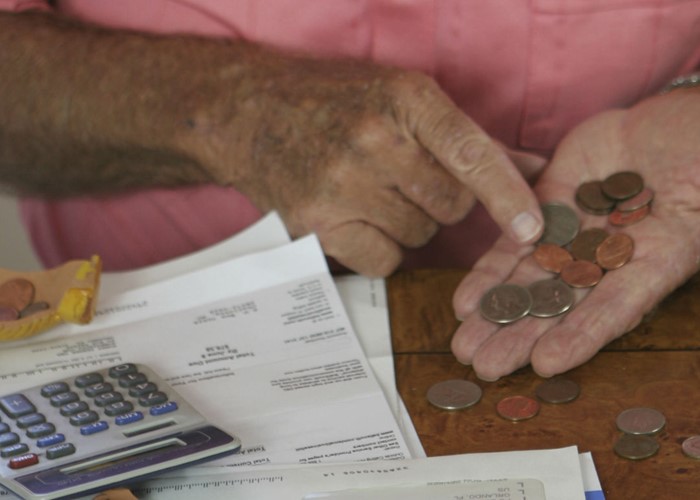HMRC Personal Savings Allowance tax bungle leaving pensioners short of cash

The new Personal Savings Allowance means HMRC can tax savers on interest they haven’t yet been paid.
Pensioners are being forced to live on reduced incomes thanks to the new Personal Savings Allowance (PSA) rules, which mean many have to pay tax on interest they haven’t yet received.
The PSA, which launched in April earlier this year, allows basic rate taxpayers to earn interest on savings up to £1,000 and higher rate taxpayers up to £500, tax free. Those that exceed this allowance will have to pay tax at their marginal rate.
However, some savers going over their allowance are finding they owe tax on savings they don’t have access to as it is tied up in a fixed-rate bond. That’s because tax on interest is due in the year it is paid, so you will have to shell out even if the bond hasn’t matured.
Older savers that exceed their PSA are particularly at risk from this tax bungle because HMRC will adjust their tax code to deduct money from their monthly pension or salary to clawback tax on the interest they are due to get from bonds that year.
This strange rule could leave them many hundreds of pounds out of pocket for up to 12 months or until their bond reaches maturity, which could be as long as five years, until the cash from their savings interest is paid.
Read more about this in: Personal Savings Allowance could mean tax bill shock for fixed-rate savers.
How pensioners are being hit
Before April 2016, banks and building societies took 20% tax off the interest it paid before reaching your account. But now they pay interest without taking any tax off at all.
This is great news - as long as you receive less than £1,000 as a basic rate tax payer or £500 as higher rate taxpayer. However, if you earn more than your allowance, HMRC will start to collect what you owe by adjusting your tax code.
This has a significant impact on those with savings in fixed-rate bonds where the interest is paid annually. This is proving to be a big problem for many savers, especially pensioners, who tend to put their money into fixed-rate savings in order to generate an income.
The interest on NS&I’s pensioner bonds, for example, is only paid when they mature.
The three-year 65+ Growth bond, which pays 4%, would return £400 a year based on the maximum £10,000 being put in.
So a basic rate taxpayer would see £6.66 a month taken from their salary or pension, even though they will only get the interest at the end of the three-year term.
Money can’t be taken out of fixed-rate bonds without incurring a penalty so pensioners are being forced to pay out and live on less while they wait for their provider to pay out.
Read more about the PSA in: Personal Savings Allowance: how it works and where you should put your money
What HMRC says
This loss of monthly income can have a major impact on pensioners who are already squeezed on their monthly income. However, HMRC stands by the practice.
A HMRC spokesperson told Money Mail: "Changing an individual's tax code to collect tax due is a well-established means of collection that removes the need for many taxpayers to complete a tax return or contact us.
"If anyone believes they will pay too much or too little tax, they can get their code changed."
Maximise your savings income. Compare savings accounts today
Don’t miss these:
How to get a State Pension forecast
Pensions: how to save for retirement when you're young
Pension freedoms: all you need to know
Pension Protection Fund: what it is and how much compensation you get
Comments
Be the first to comment
Do you want to comment on this article? You need to be signed in for this feature